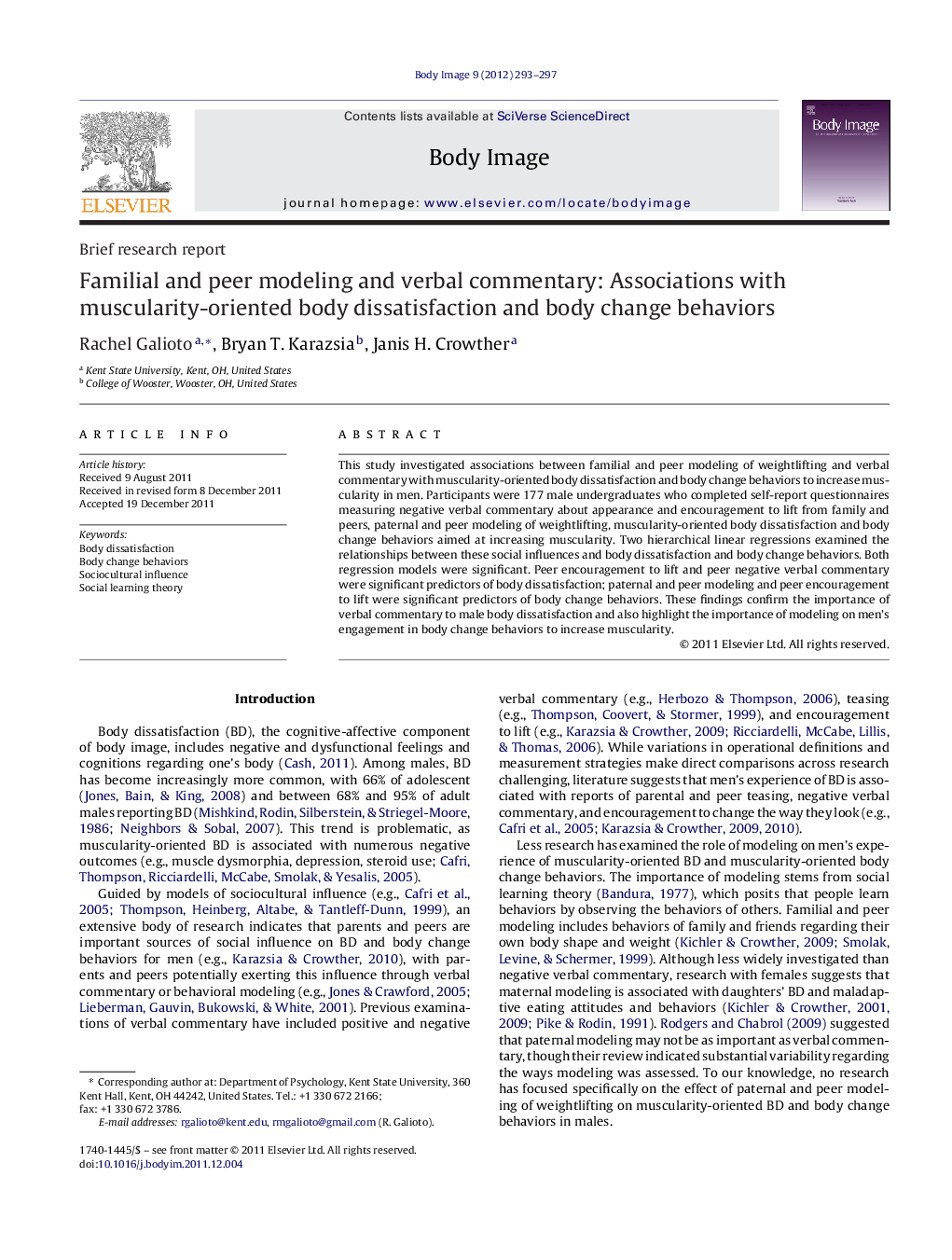| کد مقاله | کد نشریه | سال انتشار | مقاله انگلیسی | نسخه تمام متن |
|---|---|---|---|---|
| 903135 | 916512 | 2012 | 5 صفحه PDF | دانلود رایگان |

This study investigated associations between familial and peer modeling of weightlifting and verbal commentary with muscularity-oriented body dissatisfaction and body change behaviors to increase muscularity in men. Participants were 177 male undergraduates who completed self-report questionnaires measuring negative verbal commentary about appearance and encouragement to lift from family and peers, paternal and peer modeling of weightlifting, muscularity-oriented body dissatisfaction and body change behaviors aimed at increasing muscularity. Two hierarchical linear regressions examined the relationships between these social influences and body dissatisfaction and body change behaviors. Both regression models were significant. Peer encouragement to lift and peer negative verbal commentary were significant predictors of body dissatisfaction; paternal and peer modeling and peer encouragement to lift were significant predictors of body change behaviors. These findings confirm the importance of verbal commentary to male body dissatisfaction and also highlight the importance of modeling on men's engagement in body change behaviors to increase muscularity.
► Muscularity-oriented body dissatisfaction associated with strategies to increase muscularity.
► Sociocultural influences associated with body dissatisfaction and body change behaviors.
► Peer encouragement to lift and negative verbal commentary predicted body dissatisfaction in males.
► Paternal and peer modeling of lifting and encouragement to lift predicted body change behaviors.
Journal: Body Image - Volume 9, Issue 2, March 2012, Pages 293–297